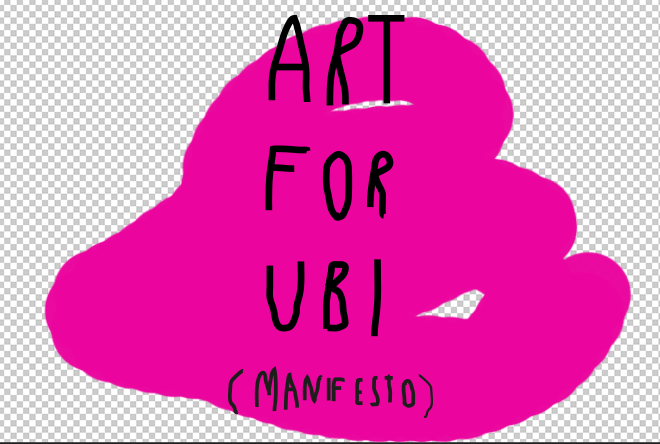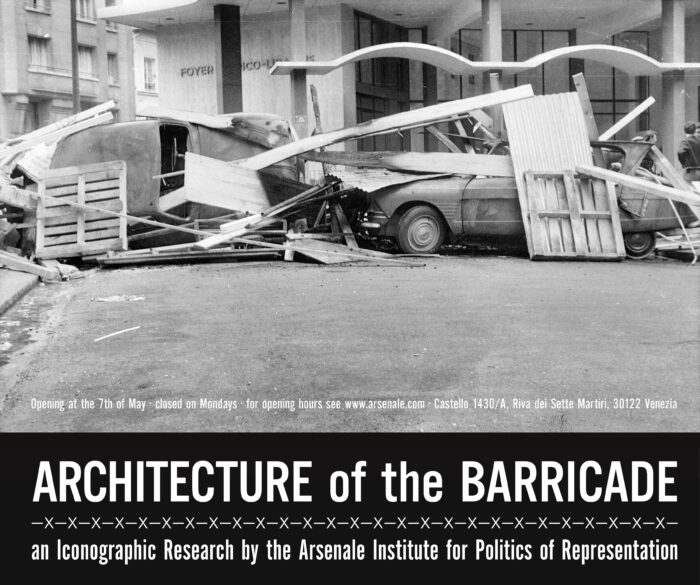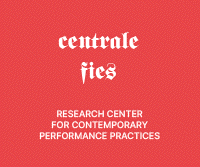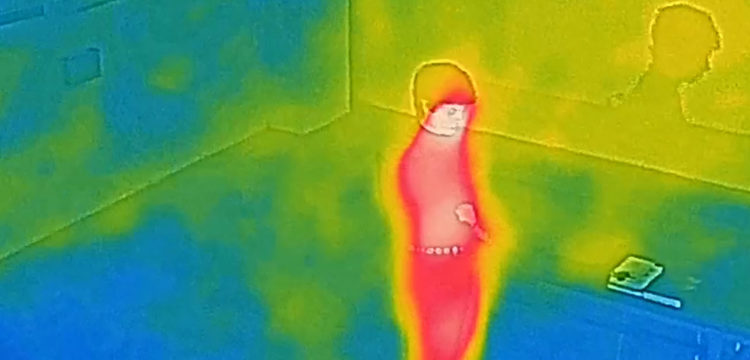A City that Cares
From the creative city to the caring city, proposals for new relational paradigms
At the beginning of the second phase of the health emergency, the Forum dell’arte contemporanea italiana (Italian Contemporary Art Forum) has published a press release that questioned both the future of Art in Italy, the operative capacity of large institutions, theaters and museums, as well as the survival of smaller independent spaces—as vital and indispensable for the contemporary artistic research—and last but not least, the position of art operators, such as artists, curators, critics, gallerists, educators and technicians, who are essential for a huge sector of the cultural socio-economic life of the country.
The dystopian experience of museums devoid of artworks, empty theaters and libraries has led to the necessity to elaborate a debate, in order to formulate proper demands towards the government and the public administration. In May 2020, the Forum has convened six round tables composed by artists, curators, art institutions’ directors, art workers and others, to reflect upon different subjects.
The theme of the first round table was “From the creative city to the caring city, proposals for new relational paradigms” coordinated by Pietro Gaglianò and the Institute of Radical Imagination represented by Marco Baravalle and Emanuele Braga. Starting from the effects of this current crisis on the immaterial economies and on the social relationships, the table has focused on the overcoming of the event economy, so to separate artistic practice from the logic of consumption and gentrification, and rather to connect it to the imagination of new ways of living together. This implies a critique of the mobility model within the neoliberal art world, the recentralization of habitability and radical pedagogy.
Giulia Crispiani: “From the creative city to the caring city” is the subtitle of your working table and the main discussion topic. What would be your practical strategy to insert the concept of care into the creative industry? Especially as you mentioned during the plenary assembly “art is not the art system”—what do you propose specifically for the realm of contemporary art?
Marco Baravalle: I think we should clarify one point. The caring city represents an alternative to the creative industries, not their update. Care is not something that we want to insert in that neoliberal paradigm. If it would be so, the only result would be to feed the existing machine with one more buzzword. This is not what we want. To substitute the creative city with the caring city would mean first of all to cut the ties that link the art system to the real estate rental system and gentrification, to imagine a new relationship between art and the city.
Pietro Gaglianò: What we call “the art system” replicated, throughout the past 80 years, the structures and the roles of capitalist production, with the consequent logics of exploitation and consumerism. Art, with its transformative capacity of the world, is given in a dimension that transcends—or can even completely ignore—such geometry of power and dissipation. The caring city is also the promotion of spaces for a shared creation of meaning, spaces to be thought of, to be dwelled into, to keep distance from the logic of consumption.
Emanuele Braga: Being creative, ranking cities up to their own degree of creativity, moving from a fordist model of labor to creative industries… This has been the paradigm of the last 30 years of precarisation of labor and social exploitation. In my opinion we are now facing a new phase. It is more and more evident that the way in which society reproduces itself is the real value. The former idea of an economy based on production of goods is no longer central in the neoliberal vision. The new idea behind exploitation is to control life cycles and the way in which people manage their time, education, health, relationships (increasingly digitalized), as well as the control over natural resources. The most important race, led by technological tools, is about death and reproduction of life. That’s why care is the new oil. And only if we build another conception of care we will be able to play the real game.
What are the goals of the Institute of Radical Imagination? Can you tell us a bit about the School of Mutation?
Marco: The goal of the IRI is to create a network among art institutions and activist collectives in the Euro-mediterranean zone and beyond (there are some very active members in Russia as well). The project had a quite long gestation, I think the first preliminary meetings happened more or less four years ago. Since then we have been having workshops quite regularly in Europe (in Naples, Athens, Madrid and Istanbul) on different issues: alter-institutionality, solidarity, education and much more. I see the IRI as a network through which it is possible to do something more than the usual inclusion of radical issues in art public programs, and instead focusing on giving to the activist realities more tools to survive and influence the institutional art debate. The School of Mutations was of course imagined during the hardcore months of the pandemic as a series of online workshops and discussions on a number of different issues, from care to militant cinema, from universal basic income to the future of museums and Biennials. Well, I am not a huge fan of online programs, but I think all the people that want the art system to restart in a different way, have the responsibility to speak out—normality was the problem.
Emanuele: We created IRI in order to self organize an international platform as an Institution of the Common. We based IRI in the South of Europe and the Mediterranean area because we felt the need to remain in this decolonization process from the European culture. These are places where the most revolutionary movements of the last few years have been emerging, but these lands have also been suffering the most crisis and political repression. In IRI, we gathered directors of big art institutions, artists and activists in order to open up a symbiotic common action: the urgency was and it is to radically imagine another post-capital landscape.
In the general attitude that public institutions have been carrying out, according to which the economical output has the priority over a change of paradigm or discourse, where matters and subjects “shouldn’t be too heavy” (or—this I add—too politically involved, which is an obvious fallacy), what position shall we all take as actors and agents in this whole (precarious) system?
Marco: I think this is nothing new, it’s at least thirty years that the neoliberal turn had an impact on art, basically naturalizing the fact that an art institution priority is one of entrepreneurial nature. Now, especially in the US, we see that this assumption is reinforced as an answer to the Covid19 crisis. The only possibility is to organize and to fight this type of discourse and policies.
Pietro: Today the radical position of individual and collective subjectivities has to be political, in the etymological declination of the term. The meaning of “political” transforms the multitudes into a citizenry and a community, through the use of language and the faculty of imagination. This way is possible to build alternative narratives inspired by responsibility and solidarity, by connecting intellect to passion.
Emanuele: What we felt from the very beginning of this pandemic and lockdowns, is the possibility to stop and say NO. The virus forced the human kind to stop. Even more importantly, it showed us that it is indeed possible to pull the break. And what the governments and the businessmen immediately said was—we must go on! We have to switch on the engine again as soon as possible! Let’s go back to normality anew! I think that at least we should remember this rhythm, and what we felt during the quarantine. We have to reclaim this right to intermittence. We have to train ourselves to stop willingly—to switch off our nervous system, to sleep and to dream again. The digital surveillance and the attention economy we live in are silently dismantling this space of freedom. I think that this is the main role of art, for it to become a training to take distance, to open up perception, and to halt disciplinary approaches to life.
What about the issue of allyship towards most urgent matters, especially in such a present of ecological emergency, uprisings and pandemics?
Marco: Allyship is important where possible. One example: one of the output of the table we coordinated for the Forum of Italian Contemporary Art, is the collective writing of an ART FOR UBI (Universal Basic Income) Manifesto. The idea is that the group of art workers supporting the manifesto will physically meet at the Venice Climate Camp next September. So, allyship is important, but beyond that, only mass movements will have a true impact on both art institutions and art workers subjectivation processes. In order to transform the art world, society ought to be transformed first.
Pietro: First of all, allyship implies the will to comprehend other people’s needs, issues and urgencies. Allyship activates a process of analytical and emotional reaching of the other. It goes towards the perfect opposite direction of the divisive strategies run by vertical powers and promotes mutualism as a virtuous model of social ecosystem. Finally, beyond its functional impact in protests and social struggles, allyship makes tangible the truth that nobody can save himself alone.

Beside care, pleasure is a fundamental component in your reflection. What are your suggestions to nourish that aspect?
Pietro: Pleasure is a symptom and a stimulus of the re-appropriation of the sensorial horizon, therefore it describes an aesthetic dimension of political action. It should be interpreted according to the tradition of the feminist movement, as a place for self-discovery, as in contrast to constraints, as a desertion of labels and imposed roles.
Emanuele: Pleasure. Yes. From a feminist prospective the personal is political: putting in the center the care matter means to fight in order to be happy, for a sort of wellness. When speaking of relationships and the social fabric, the question would be what kind of care and relations? The labor market, the digitalization of the social and the competition in the art system, are defining a specific quality within these relations between artists based on debt, precarization, 24h availability, sadness and exclusiveness by design. I think that, in the economy, the concept of scarcity is a tool for social control. A revolutionary society has to be based on plenty. We have to refuse the ethic of sacrifice (also in activism) redefining the concept of “plenty” not based on commodification, but on real needs, and what is really useful.
If “to learn means to mutate our organizational capacities” what are the models to follow when posing our demands?
Pietro: The understanding of social ecosystems, of the hegemonic structures that oppress them and of the strategies to fight such systems must be a permanent process—just like the revolution. This requires that the models we refer to must be constantly revised, also in order to circumvent the system’s control capacity. The tradition of anarchist and libertarian thought indicates some horizons of action in which the experience of art is comparable to the movement that animates the political struggle for freedom and equity. In my last book (about art, pedagogy and anarchism), I wrote that art opens spiritual, intellectual and aesthetic fractures, urging each time a creative action, rather than a reaction. In this way art is the only glimmer constantly open to transformation, it is a potential force that is renewed, it is the symptom of an ongoing permanent revolution.
Emanuele: This point is very important, especially in the art system. Every worldwide art event, public program, residency grant, practice based research grant, on whatever scale, usually tackles political or social contemporary issues. Art loves to speak about politics but dislikes changing itself according to the same contents. It is very easy to take in an important art fair, in a Museum, in the most famous event in the art world like the Venice Biennale or Documenta… with political contents such as the right to the city, or feminism, social equality, decolonization, climate change… We could say that the art system needs these contents—it couldn’t exist without these narratives. Yet, it’s almost impossible to change these organizations and structures according to the same contents they propose.
This inconsistency between narratives and real organizational capacities, symbolic value and infrastructures in the art system is the real contemporary issue. A caring city is more about infrastructure, how to build a real ecosystem, how to root the narrative in real fights and alternative organizations rather than simply talking about it.
In order to participate in this process, I think we have to fight on a double level: on the one hand we should build an alternative organization of the common, on the other we ought to reclaim our public role as socially oriented. For this reason we are organizing a front for universal basic income on a European level, and supporting a network of art alternative organizations that are experimenting with ways of being sustainable and living together.





